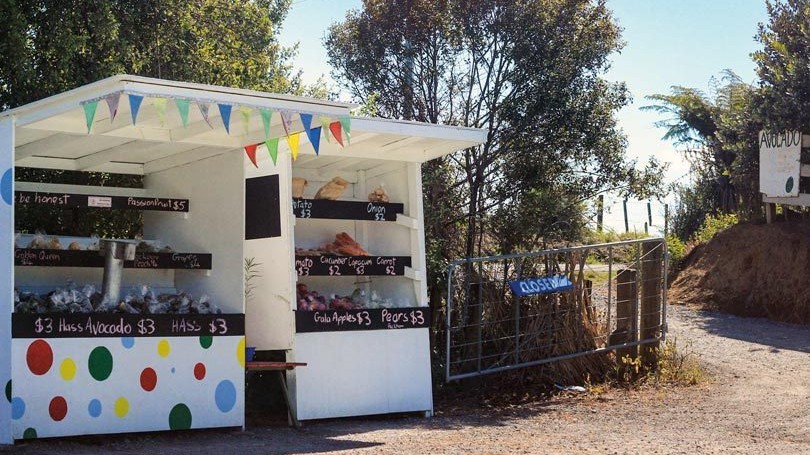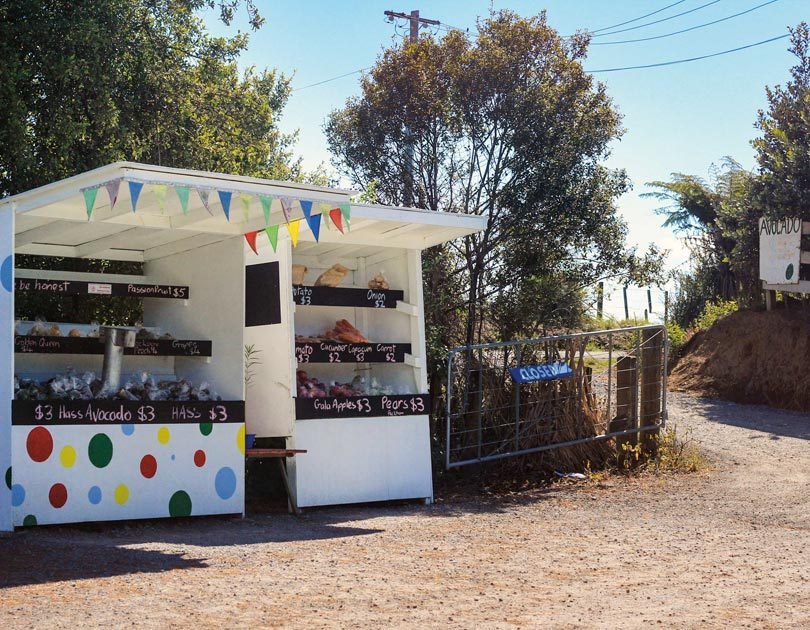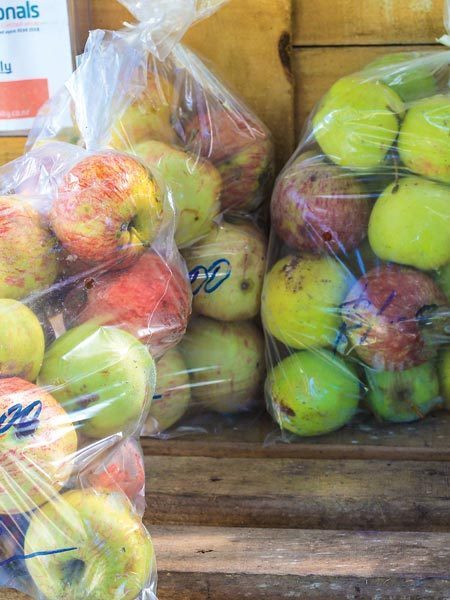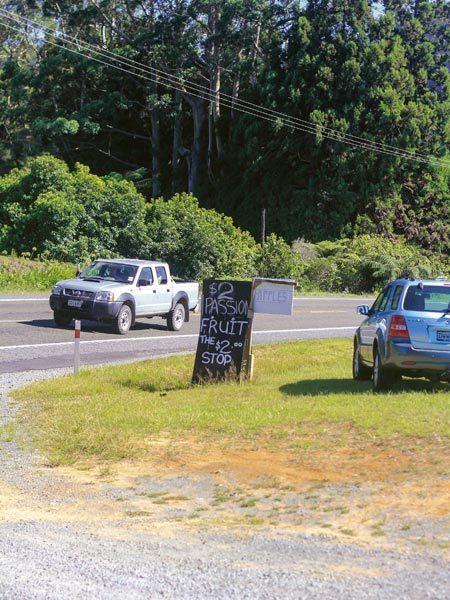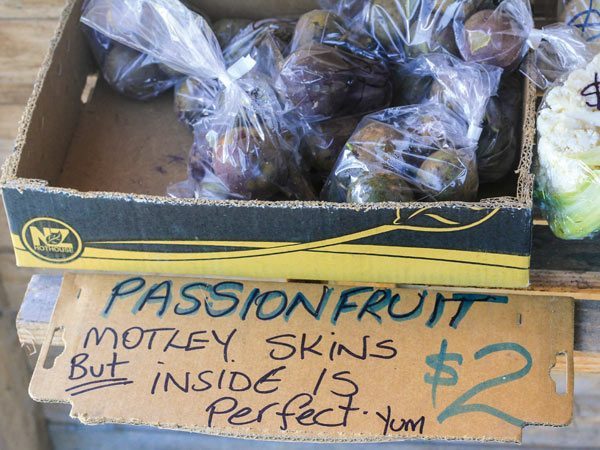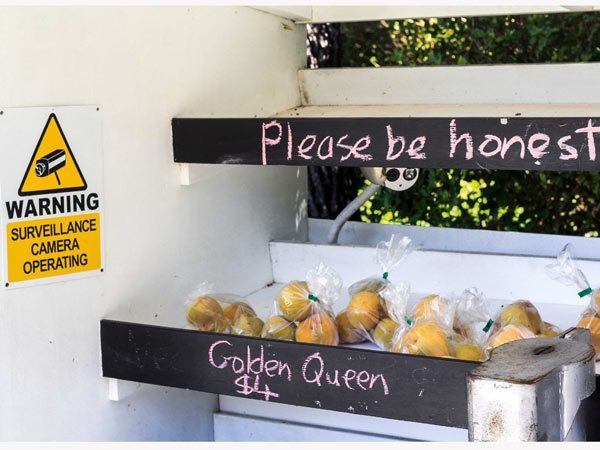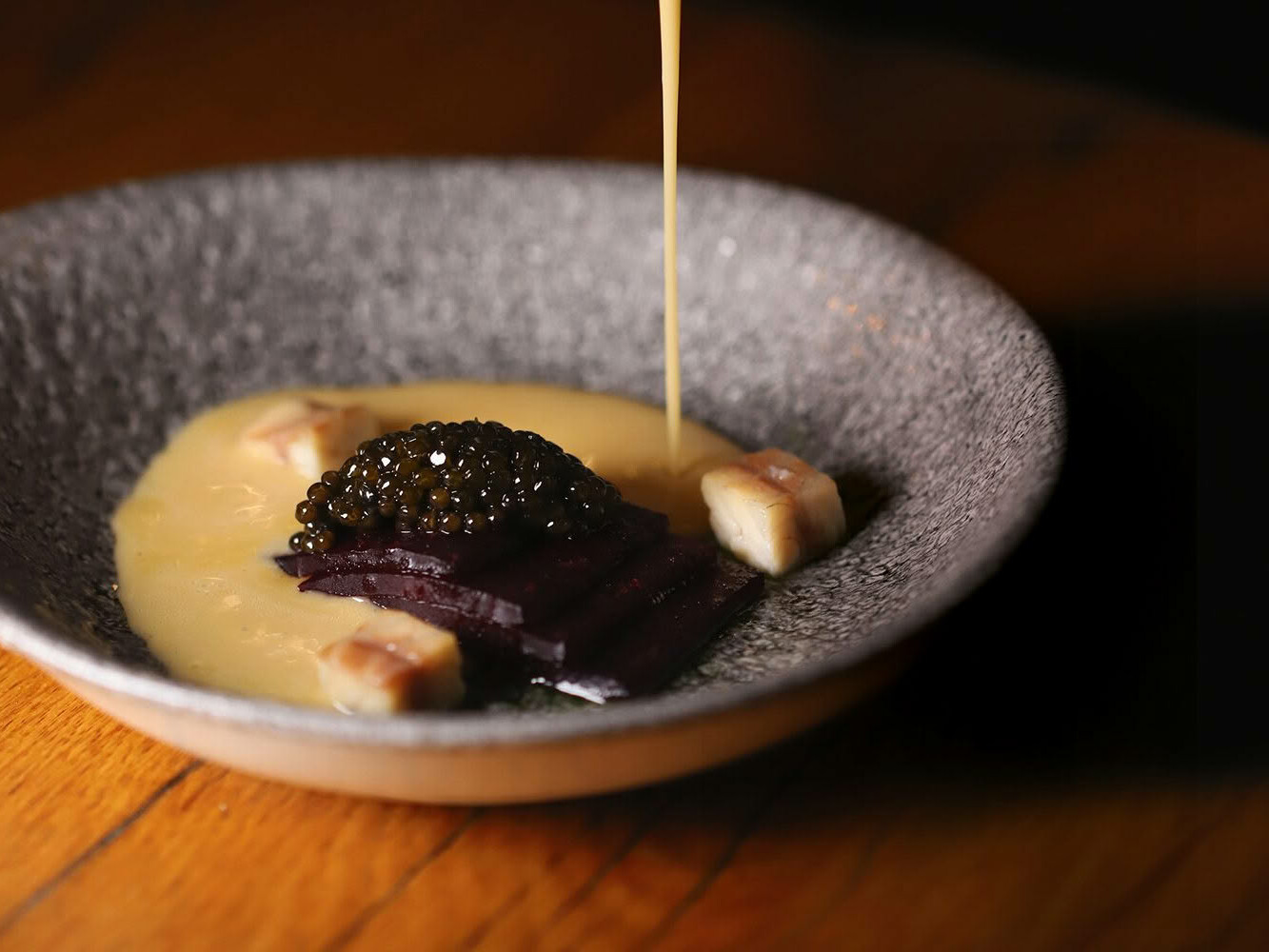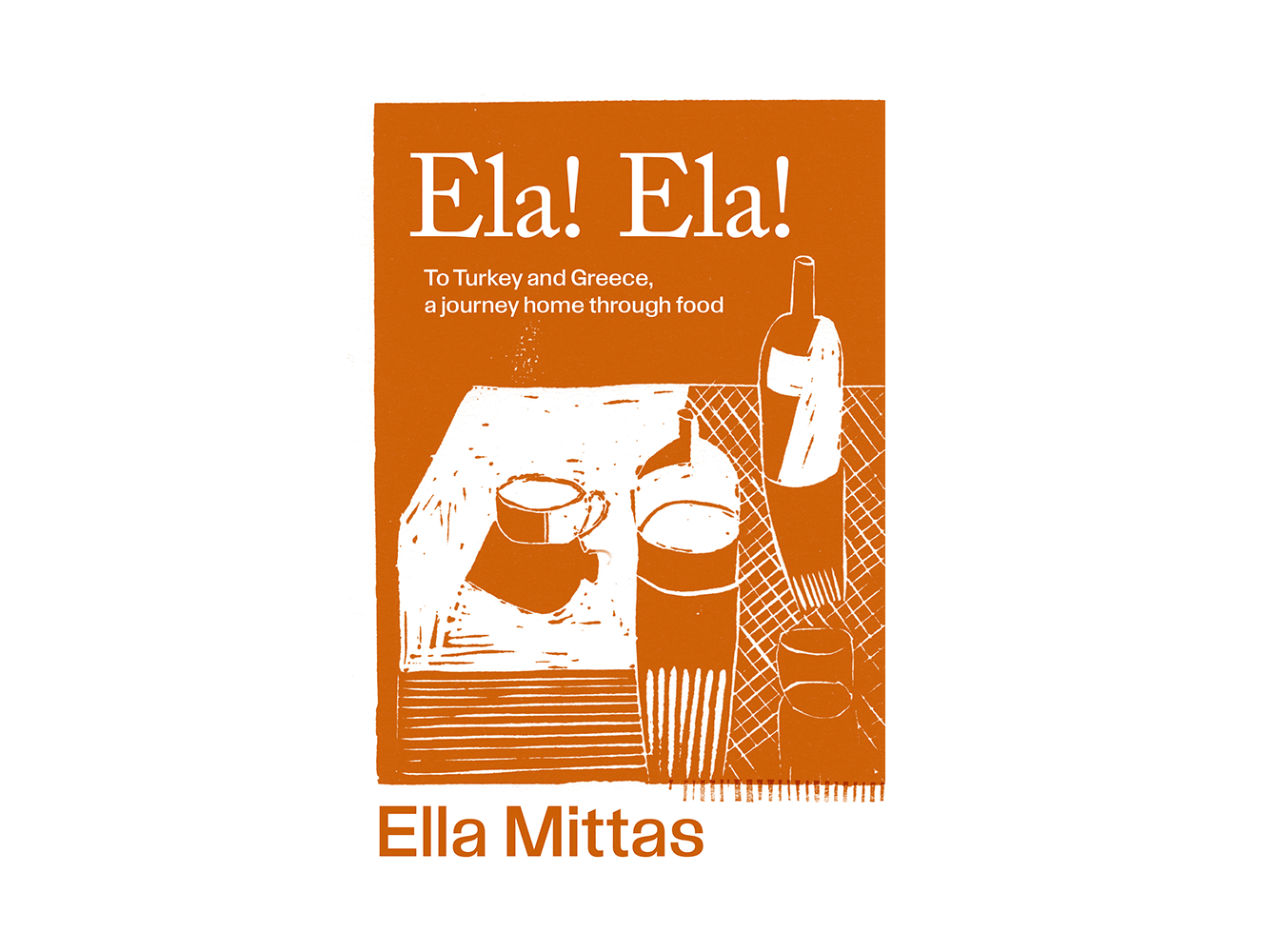We celebrate the tradition of the Kiwi honesty box
We celebrate buying fresh produce right at the farm gate, and find that the tradition of the Kiwi honesty box lives on.
There’s a wee section of road north of Tauranga, between snippets of sea, hills and farmland, that has some hidden gems dispersed around its sideroads.
Produce-laden stalls are just out of sight, but they’re there. Some, north of Katikati, are a bit more conspicuous.
One such gem has been there for close to 40 years, simply called The Avocado Place. As well as its eponymous fruit, there are tomatoes, cabbages, onions, oranges, silverbeet, passionfruit – whatever is in season. Like many stalls around them, or up and down the ventricles of the country, they stock the freshest produce you can find.
Fiona Heays, who has been looking after the spot for the past 17 years, says it had already been going for close to 20 years before she and her husband took over. The majority of the produce on the stall comes from their own plot of land, and what they can’t provide comes from the Tauranga Farmers’ Market. “We do buy in things, I grow a lot of it and we do sell some stuff for other people,” she says.
It was originally on the side of the road, off State Highway 2 towards Waihi Beach, before they moved it onto the main road in November last year. The Avocado Place has seen an upgrade, with multi-coloured polka dots sprayed across the side of the stall and some bunting sewn by Heays’ mother.
However, the honesty box fixed to the stall is sometimes stolen; it was pilfered in March this year. There’s a bit of a community around the stall-holders who alert each other to dishonest passers-by. “It’s rare, and hopefully we’ll catch them. And once we get something like that in the paper, it slows down.”
Faye Mcdougall lives just down the road from The Avocado Place, and has her own stall.
“To be honest, we get stolen from every single day. But you’ve got to take losses as well,” she says.
It’s a reality of the stall game that not everyone is honest and some might try to get away with the box. Most drop in a few less coins than they should, or nothing at all. The stalls have cameras now, and the stall-holders name and shame the culprits. In the main, however, both Mcdougall and Heays have honest and loyal customers.
“We get Christmas cards at Christmas time. The locals are buying from us all the time, it’s great,” Mcdougall says.
Her stall sits in the front of her property, Barview Orchard, lovingly looked after by herself and her father for the past two years. When she took over the orchard, with her husband and father, the trees were in disrepair and there was plenty of work to be done. But there was fruit.
“We put fruit in the stall as soon as we got there,” she says.
They tended their garden, which is now as productive as the trees, and she started using her granny’s pickling recipes. They sell just about everything they grow from the trees and their coveted garden. There are potatoes, onions, cabbages, broccoli, cauliflowers; and then there’s their fruit. Mcdougall and her father are very practical when it comes to what they grow – no frilly nonsense. “If we can’t eat it, we don’t want it,” she laughs.
Despite being cheaper than the supermarket – it’s about $2 per bag of anything – they’re still able to make some good money out of it, she says. That’s because there’s also a plethora of chutneys, jams and sauces that Mcdougall whips up, which are just as popular as the fruit and vegetables.
“It’s a commitment … [Dad] said right from the start, if we do this we do it seven days.”
That means someone is always home to keep the shelves stocked and to make sure no one manages to jimmy the honesty box from its perch.
The fruit and vegetable stalls prove important to many orchardists, according to Jacqui Knight, from the Katikati Avocado Food and Wine Festival’s planning committee.
Many, like Barview Orchard, are able to sell products that don’t meet retailers’ tight specifications for what constitutes good fruit. Windfall, smaller and not-so-perfect produce can be sold, and it’s arguably fresher than what people are getting in the cities.
“They’re a great service to the community. It’s good for growers, for them to get rid of excess supply and it’s great for locals or people just passing through. You get to know the locations, but on most side roads or corners there would be a fruit stall of some description.”
There’s a good variety too, though sometimes gnarly, small or with a few blemishes. One thing you can count on however: it’s fresh.
SEE MORE FROM CUISINE
Suculent where the sauce is the soul
As in any thriving city, hotspots come and go and with so much to…

